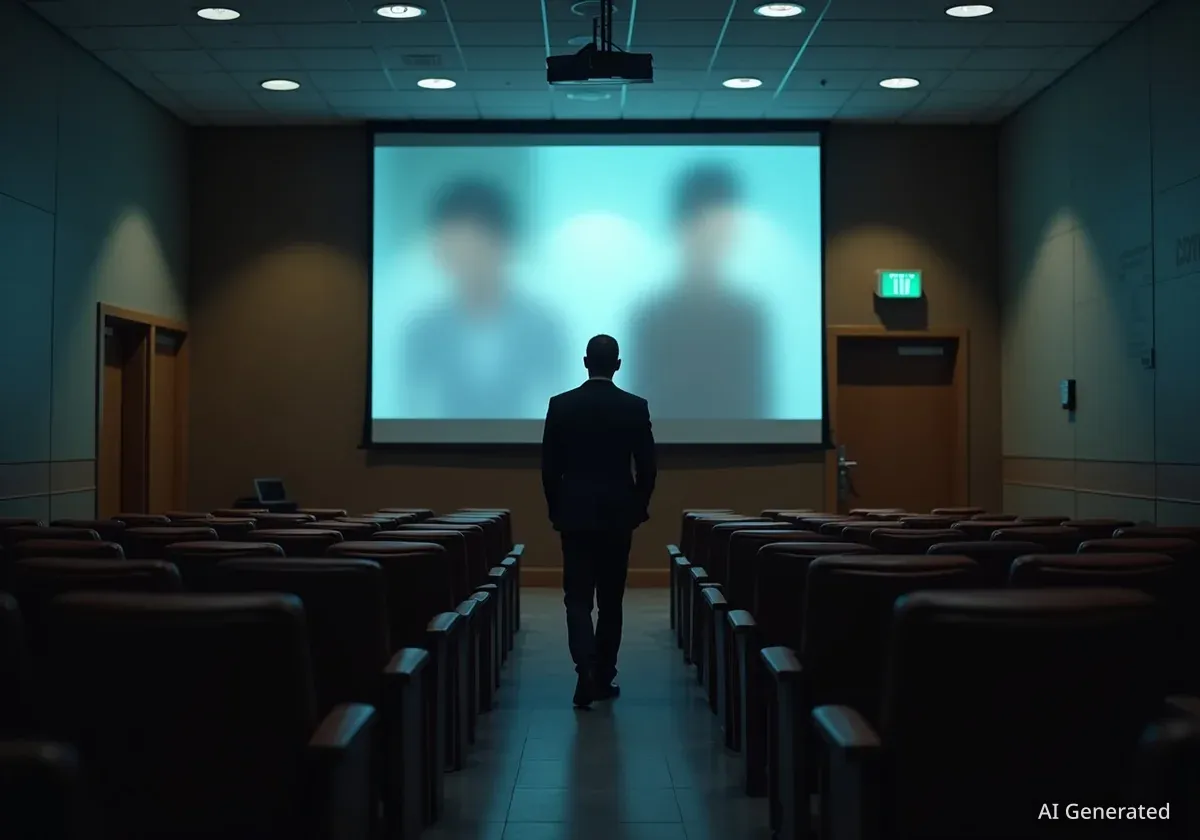University of Colorado Boulder police, directed by campus leadership, intervened to stop a student-organized screening of a Palestinian film on September 5. University officials stated the shutdown was due to policy violations, including an improper room reservation by a student group not in good standing. However, the student organizers assert they had a confirmed booking and believe their event was targeted for its political content.
Key Takeaways
- CU Boulder police shut down a screening of the film "The Time That Remains" organized by two student groups.
- The university cited the co-sponsoring group, Boulder Students for Justice in Palestine, for not being in "good standing" and for failing to follow proper event procedures.
- Student organizers provided evidence of a confirmed room reservation and claim they were given no prior warning of any issues.
- The incident highlights ongoing tensions on U.S. university campuses regarding events related to the Israeli-Palestinian conflict.
Police Intervene at Student Event
On the evening of September 5, students gathered at the ATLAS Institute on the University of Colorado Boulder campus for a film screening. The event was co-hosted by Boulder Students for Justice in Palestine (SJP) and GUT-C, a student filmmaking group. They planned to show "The Time That Remains," a 2009 film depicting a Palestinian family's experience following 1948.
As organizers were preparing, two CU police officers arrived. According to Annabelle Brown, a member of SJP, the officers positioned themselves outside the auditorium and prevented people from entering. The students were informed that a problem with their room reservation meant the event could not proceed.
A CU police report on the incident noted that "executive leadership" at the university had requested the police department's response. The report stated, "The request was for us to go inform them that the space was not reserved through the proper channels and attempt to identify anyone that was there."
University Policy on Campus Events
According to CU Boulder officials, all campus events must adhere to specific procedures. This includes completing an Event Management Form, especially for events held after regular hours, open to the public, or involving fundraising. The university states these rules are in place to ensure safety and compliance with campus policies.
Conflicting Accounts of the Reservation
The core of the dispute lies in the conflicting claims about the event's booking status. The university maintains the student groups failed to follow established protocols. Sarah Barwacz, a spokesperson for the CU Boulder Police Department, explained that events must complete the required forms for safety and security reasons.
University spokesperson Nicole Mueksch confirmed that campus leaders directed the police to intervene because the event violated policy. "In order for an organization to host or co-host a meeting on campus, they must be in good standing with the university," Mueksch said in a statement.
Student Group's Standing Questioned
Officials stated that Boulder SJP is not currently in good standing with the university due to unspecified prior policy violations. Because of this status, the university claims the co-sponsored event should not have been permitted to take place. The specific nature of the prior violations was not disclosed by CU officials.
In contrast, Annabelle Brown of SJP presented an email that appeared to confirm the students' reservation for the auditorium in the ATLAS building. "The room was reserved ahead of time, and we had talked to the building proctor and they had approved it," Brown stated. She emphasized that the groups received no advance notice about any problems with their booking.
"Nobody received any communications about any problems with the room booking beforehand. It’s kind of silly because it’s a movie screening... That’s a lot of energy to send the police to come and lock down a campus building."
Justification for Police Involvement
The use of campus police to handle a room reservation issue has drawn scrutiny. When asked if this was standard procedure, police spokesperson Sarah Barwacz said the department's main priority is campus safety. She explained that police can be used in a variety of situations.
"CUPD can be utilized in various situations — including and not limited to — to secure locations, calls for assistance, when leadership is unavailable and, in this case, when regular attempts to work with student groups are met with further policy violations and disruption on campus," Barwacz wrote.
A Pattern of Campus Tensions
This incident is not isolated. In April, CU Boulder police investigated a separate event where two men physically removed pro-Palestinian protesters from a classroom. Video of the interaction showed students being dragged from the room, though no criminal charges were ultimately filed.
The university maintains its commitment to free speech while also requiring adherence to its policies. "We want to see all of our student groups thrive and have a voice on campus — we pride ourselves for being a leader in free speech, and we routinely host speakers of all viewpoints," Barwacz added. "We do, however, require all student groups to follow policies."
Broader Context of Campus Activism
The shutdown at CU Boulder reflects a wider trend of heightened tensions on university campuses across the United States related to the Israeli-Palestinian conflict. These institutions have become focal points for protests, debates, and administrative actions involving student groups with opposing views.
For the student organizers, the university's actions are seen as a form of suppression. "We are being targeted by the administration with these repression tactics, and it’s because of our political content," Brown asserted.
The incident leaves questions about the balance between enforcing university policy and facilitating student expression, particularly on politically sensitive topics. The differing accounts from the university and the student group illustrate the complexities and deep divisions present in these campus environments.





